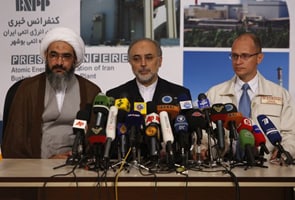- Chemical
- Commercial Facilities
- Communications
- Critical Manufacturing
- Dams
- Defense Industrial Base
- Emergency Services
- Energy
- Financial Services
- Food and Agriculture
- Government Facilities
- Healthcare and Public Health
- Information Technology
- Nuclear Reactors, Material, and Waste
- Transportation Systems
- Water and Wastewater Systems
*** 
Related reading: Hacker study: Russia could get into U.S. voting machines
WE: op election officials from around the country met this weekend to create the formal organization to hash out what powers and lines of communications the Department of Homeland Security should have after the department designated voting systems in the states and territories as “critical infrastructure” earlier this year. By voting to adopt a charter for a “Government Coordinating Council,” the secretaries of state now have a group that has an official channel and a single “voice” to communicate with DHS.
The move marks the first major step in the coming together between the nonpartisan National Association of Secretaries of State, or NASS, and DHS, amidst a contentious and sometimes mistrusting year.
“The other importance of the coordinating council actually being formed, is that there is so much activity on the federal level regarding legislation, I think this will give us, hopefully, a venue to help us inform members of the U.S. Senate and House of Representatives that states are taking an active role and we are doing a lot to prepare ourselves for the 2018 elections and beyond,” said NASS President and Indiana Secretary of State Connie Lawson.
Lawson and six other secretaries of state were in Atlanta this weekend for the first real efforts at coordinating between the states and DHS.
Although DHS has insisted from the start their “critical infrastructure” designation doesn’t give them any actual powers or authority over state and local voting systems, local officials have been wary. They say they can’t be sure DHS wasn’t encroaching on authority reserved explicitly to the states until DHS had clearly delineated their mission and what they hoped to accomplish with the critical infrastructure tag.
NASS and even U.S. senators and representatives expressed serious concern that although DHS knew for months about attempted “hacks” around the time of the 2016 elections, the affected states weren’t notified by DHS until this past September.
When the local election officials were finally notified, it immediately generated headlines around the country that “21 states” were the victims of some kind of hacking attempts on their voting systems, or on computer systems that may have been linked to the same offices as the voting systems.
However, in the intervening weeks, at least four states have come forward – California, Texas, Wisconsin, and Arizona – and disputed to some degree the DHS finding that they were the victims of a hack attempt.
Elected officials on Capitol Hill were upset as well when the “21 states” news broke.
“It’s unacceptable that it took almost a year after the election to notify states that their elections systems were targeted, but I’m relieved that DHS has acted upon our numerous requests and is finally informing the top elections officials in all 21 affected states that Russian hackers tried to breach their systems in the run up to the 2016 election,” said Sen. Mark Warner, D-Va., who serves on the Senate Intelligence Committee, which has taken an active role in trying to look at election vulnerabilities from 2016 in order to create more voting security in the future.
Lawson said NASS officials were still concerned about the lack of communication, but were also not trying to harp on the topic at this weekend’s meeting in Atlanta.
“I can’t say we’ve set it [communications issues] aside, but I can say we are just trying to make sure that things like this don’t happen again, that we all use the same terminology, that there’s a chain of communication that needs to take place,” Lawson told the WashingtonExaminer.
“We’re cautiously optimistic that things are going to get better,” she said.
Besides discussing the communications issues and communications chains in the event of problems in the future, Lawson said the coordinating council also discussed goals and deliverables.
“Those are just big, high-level pictures,” Lawson said.
“And then, who’s going to do the work, and how are we going to make sure that DHS has the support they need to stand up this coordinating council.”
“It was a logistical issue just being able to get everybody here because there wasn’t an official council at the time,” Lawson added later.
Secretary of Homeland Security Jeh Johnson originally made the critical infrastructure designation in the last days of the Obama administration. However, not long after, then-DHS Secretary John Kelly said the Trump administration had no plans to rescind the designation.
Apart from DHS, representatives from Election Assistance Commission were in attendance as well.
“State and local officials have already taken a number of steps to improve the security of the nation’s elections, and under the Government Coordinating Council we will be able to further leverage resources and our collective expertise,” said Bob Kolasky, the acting deputy under secretary of the DHS National Protections and Programs Directorate in a statement.
“The security of the nation’s elections are critical to our democracy, and DHS stands ready to support this important mission through exercises, information sharing, and technical cyber analysis and expertise.”




